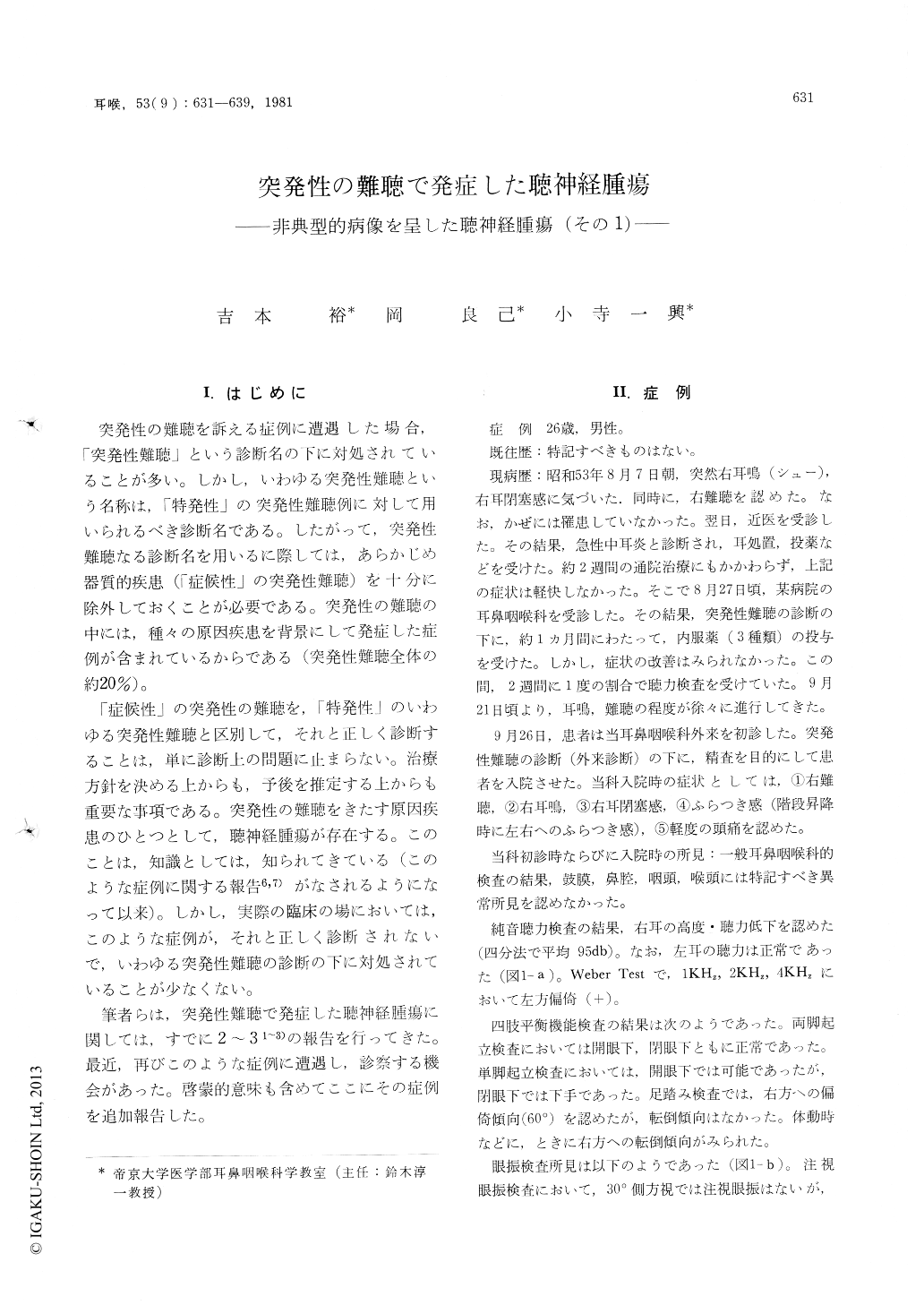Japanese
English
- 有料閲覧
- Abstract 文献概要
- 1ページ目 Look Inside
I.はじめに
突発性の難聴を訴える症例に遭遇した場合,「突発性難聴」という診断名の下に対処されていることが多い。しかし,いわゆる突発性難聴という名称は,「特発性」の突発性難聴例に対して用いられるべき診断名である。したがって,突発性難聴なる診断名を用いるに際しては,あらかじめ器質的疾患(「症候性」の突発性難聴)を十分に除外しておくことが必要である。突発性の難聴の中には,種々の原因疾患を背景にして発症した症例が含まれているからである(突発性難聴全体の約20%)。
「症候性」の突発性の難聴を,「特発性」のいわゆる突発性難聴と区別して,それと正しく診断することは,単に診断上の問題に止まらない。治療方針を決める上からも,予後を推定する上からも重要な事項である。突発性の難聴をきたす原因疾患のひとつとして,聴神経腫瘍が存在する。このことは,知識としては,知られてきている(このような症例に関する報告6,7)がなされるようになって以来)。しかし,実際の臨床の場においては,このような症例が,それと正しく診断されないで,いわゆる突発性難聴の診断の下に対処されていることが少なくない。
A case of sudden deafness due to acoustic neurinoma is presented with the detailed neurotological findings. The patient was operated on by combined translabyrinthine and suboccipital approaches.
It is stressed in this paper that the possibility of acoustic tumor should be taken into consideration when we see a patient complaining of sudden hearing loss. All patients with sudden deafness should have roentgenological examinations of the internal auditory canal, and caloric test. Further diagnostic evaluation should inculde CT scan for any patient with equivocal findings.

Copyright © 1981, Igaku-Shoin Ltd. All rights reserved.


